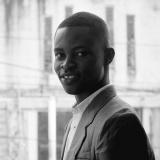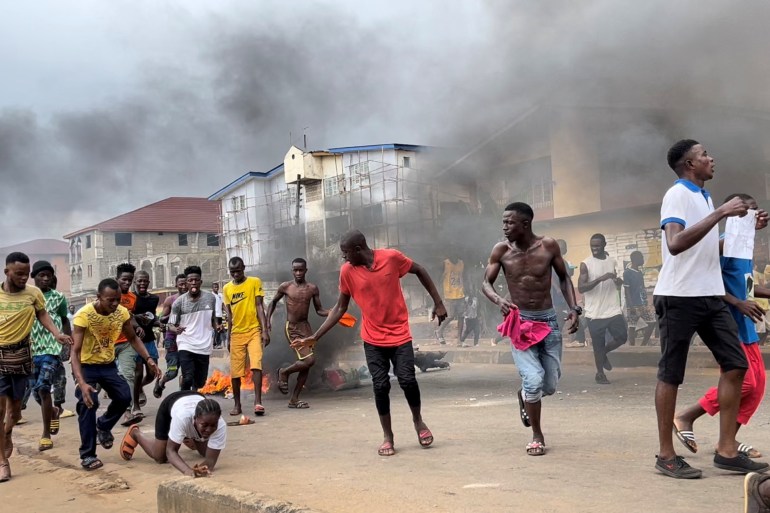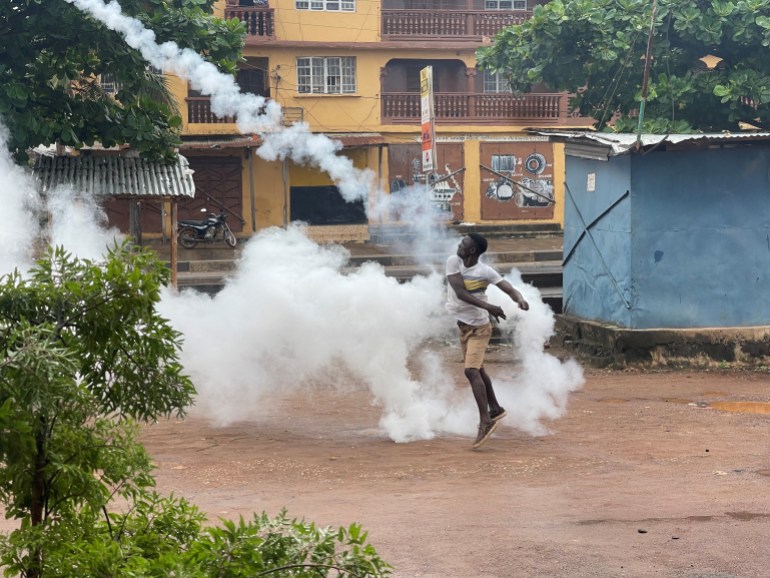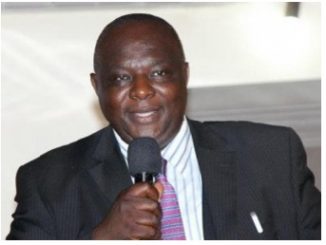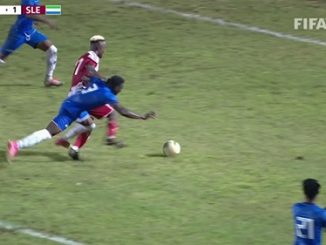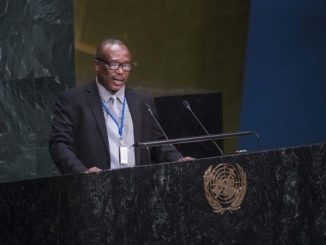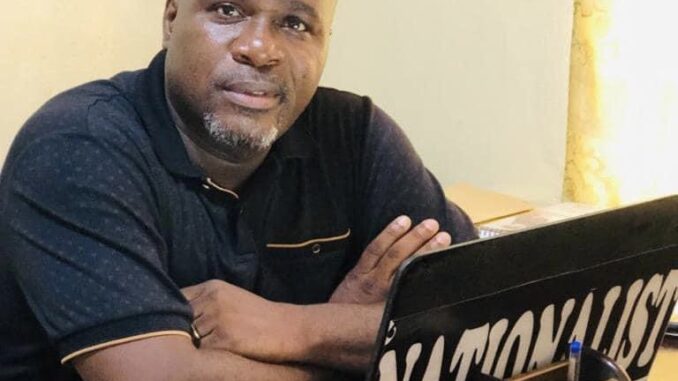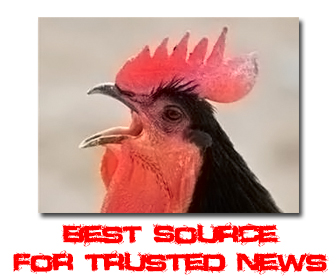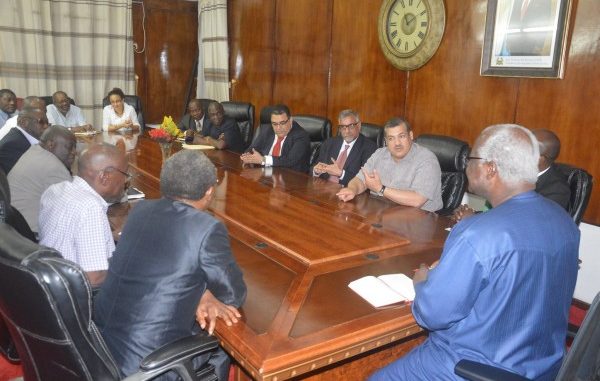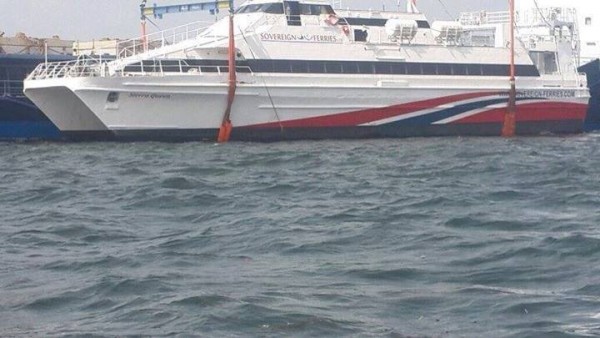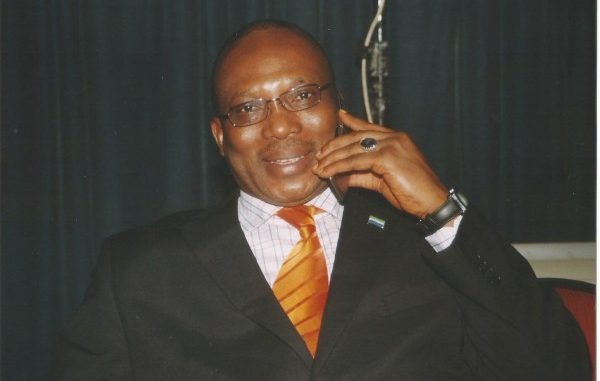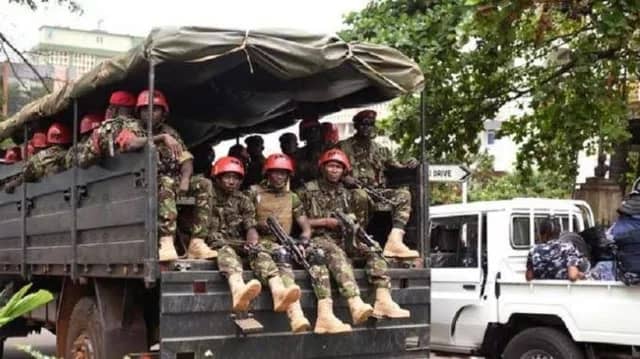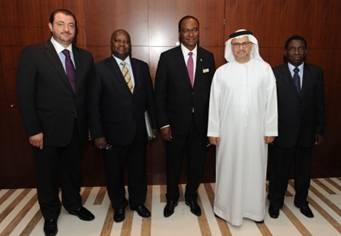Violent clashes on Wednesday erupted between police and anti-government protesters in Sierra Leone, resulting in an unspecified number of deaths in the West African nation, neighboring Liberia.
Citizens had gathered in major cities across the country to protest against “economic hardship” and chanting “Bio must go”, referring to President Julius Maada Bio, who has 10 months left in his term. Maada Bio, who is eyeing re-election, is currently in the United Kingdom on a private visit.
According to Cocorioko.net, a popular Sierra Leonean news outlet (founded 1973) whose content appears mostly critical of the ruling establishment, the street demonstration was called by an organization named PEOPLE POWER IN POLITICS (PPP) headed by a social media political commentator known as Will Adebayor, who operates from Holland. With an audience of 48,587 followers on his personal Facebook page, many have dubbed him the “King of SaLone”.
Efforts by the Daily Observer to get comments from Mr. Adebayor via his social media handle did not materialize up to the publication of this story.
Wednesday’s demonstration was the climax of a two-day sit-down strike against the Julius Maada Bio administration, which took place earlier this week, August 8 and 9. On Wednesday, August 10, as allegedly directed by Adebayor, the people came out into the streets to demonstrate. Chanting, “MAADA MUST GO, WE WANT PEACE”, hundreds of people thronged the streets of Freetown and major municipalities across the country, denouncing economic hardship, rising prices, dictatorship, corruption, and bad governance. Adebayor posted a flier on his page, announcing the opening day of the protest (August 8), calling for an end to tribalism, political intimidation, police brutality, killings, and corruption.
The government of Sierra Leone through Vice President, Mohamed Juldeh Jalloh, announced a nationwide curfew from 3 p.m. after the clashes broke out when demonstrators set up roadblocks.
According to the Washington Post, VP Jalloh informed local media that “lives of both policemen and civilians were lost,” without giving further details.
But police spokesman Brima Kamara told the AFP news agency that “two police officers, a male, and female, were mobbed to death by protesters at the east end of Freetown this morning.”
In a full statement broadcast on Sierra Leone national radio, the police said: “Following the declaration of a nationwide curfew by His Excellency the Hon. Vice President of the Republic of Sierra Leone, the Sierra Leone Police (SLP) wishes to inform the general public as follows: That the curfew shall be in force from 3 pm on the 10th August 2022 to 7 am on 11th August 2022. Every other day is from 7 pm to 7 am. That all essential workers at the following places: hospitals, hotels, radio stations, television stations, telecommunications, companies, Electricity Generation and Transmission Company (EGTC), and Electricity Distribution and Supply Authority (EDSA), with valid identification, are allowed to move around during the period of the curfew.”
Several protestors told international news agencies that security forces had also fired live bullets that resulted in deaths.
Dozens of protesters were arrested on Wednesday, police said. Dozens of injured people are also said to be undergoing treatment at hospitals in Freetown.
The internet and all other telecommunication services suffered a 2-hour blackout nationwide on Wednesday morning, according to NetBlocks, a web monitoring group. Netblocks said “Authorities subsequently denounced an attempt to ‘overthrow’ the government and imposed a nationwide curfew.”
“As a government, we have the responsibility to protect every citizen of Sierra Leone. What happened today was unfortunate and will be fully investigated. I urge all Sierra Leoneans to be calm,” President Bio posted on his official Twitter handle. He’s expected to address the nation today.
Meanwhile, expressions of concern and condemnation have poured in from the international community, including the ECOWAS Commission and the United Nations.
The Commission of the Economic Community of West African States (ECOWAS Commission) has strongly condemned Wednesday’s violence in the country.
“ECOWAS calls on all to obey law and order and for the perpetrators of the violence to be identified and brought to justice, in accordance with the law.”
In a tweet, the United Nations Resident Coordinator for Sierra Leone, Babatunde Ahonsi, said: “The United Nations in Sierra Leone expresses serious concerns over the violent incidents that occurred today in Freetown, including reports of casualties.”
Only two independent news websites on Sierra Leone have filed reports on Wednesday’s protest so far. Both outlets have published previous articles that point to a record of political intimidation by the Bio administration against political opponents. At least six other well-known independent news outlets (which are online) in the country have no coverage on the protests as at 11:59 p.m. Wednesday.
Cocorioko reported that a few months into the Bio presidency in 2018 the State House ordered the SLPP police to forcefully remove ten legitimately elected APC (All People’s Congress) party parliamentarians from the House, leaving many of the APC MPs ambushed to sustain serious beatings and injuries. And the 10 APC MPs were quickly replaced by 10 ruling SLPP party officials who were defeated in the 2018 general elections.
But in July 2022, a band of thugs, believed to be supporters of Bio’s SLPP, entered the House of Parliament and began stoning opposition MPs, causing some to sustain injuries, while one APC MP was left unconscious, Cocorioko reported.
On August 9, the Sierra Leone Telegraph, another independent news outlet, reported “allegations of misappropriation of almost One Hundred Thousand Pounds by Sierra Leone’s ministry of finance to fund the president’s latest holiday abroad – with the country in economic turmoil”.
SIERRA LEONE – It was a day of unrest and violence in the Sierra Leonean Capital, Freetown on Wednesday when anti-government protesters clashed with police in the streets; leaving several people dead and wounded.
Videos on social media showed large crowds of demonstrators, dead bodies, burning cars and piles of burning tires.
Other footage showed a group of young people throwing rocks and marching through smoke-filled streets in Freetown.
Sierra Leone’s leadership announced a nationwide curfew on Wednesday in response to the violence it said had caused an unspecified number of deaths, including among the security forces.
Vice-President Mohamed Juldeh Jalloh in a video address said “These unscrupulous individuals have embarked on a violent and unauthorized protest which has led to the loss of lives of innocent Sierra Leoneans, including security personnel.”
“The government hereby declares a nationwide curfew. The security sector has been authorized to fully enforce this directive,” he said.
He did not say how many people had been killed.
However, the AFP news agency quotes the police spokesman Brima Kamara as saying, “Two police officers, a male and female, were mobbed to death by protesters at the east end of Freetown in the early hour of the protest.
Earlier, internet observatory NetBlocks said Sierra Leone faced a near-total internet shutdown with national connectivity at 5 percent of ordinary levels.
The Economic Community of West African States (ECOWAS) said it condemned the violence and called in a Twitter post for “all to obey law and order and for the perpetrators of the violence to be identified and brought before the law.”
The government has criticized the unidentified organizers of the protest, warning that the country already has suffered enough through more than a decade of civil war that ended in 2002.
Reasons Behind The Protest
There have been brewing anger by a large segment of the public for a number of reasons, including a perceived lack of government support for ordinary people who are struggling, said Augustine Sorie-Sengbe Marrah, a constitutional lawyer and governance activist.
“There has been little empathy from the central government to encourage folks that they see them suffering, and that they understand these are tough economic times,” Marrah told Reuters.
Long-standing frustration has also been exacerbated by rising prices for basic commodities in Sierra Leone, where more than half the population of around eight million lives below the poverty line, according to the World Bank.
“People are upset about the country’s justice system which is sickening, daily price rises and economic hardship,” Daniel Alpha Kamara, a university student was also quoted by Reuters.
The protesters demanded the departure of President Julius Maada Bio, who was elected in 2018 and still has 10 months left in his term. The demonstrators chanted “Bio must go” as they made their way through the capital, Freetown.
Government Was Aware of Protest
In the build up to the anti-government protest, organizers launched a social media campaign calling on the pubic turn out in their numbers to form part of the demonstration.
The Government alerted the army to provide backup for the police in case of any eventuality.
On Tuesday, August 9 – a day before the protest, the national security coordinator, Abdulai Caulker, by the directive of the Vice President, ordered the Armed Forces to be prepared to back up the police from August 9-12, warning of a “potentially volatile security situation”, according to an internal letter shared widely online.
In the communication, Caulker said, “the Vice President and Deputy Chairman of the National Security Council has directed the Republic of Sierra Leone Armed Forces (RSAF) to assist the Sierra Leone Police (SLP) under the backing of Military aid to civil power (MACP) policy in the emergency category.”
“This directive is consequence on the potentially volatile security situation in the country caused by repeated social media incitements of the gullible population to embark on a country-wide violent demonstrations with the aim of subverting the peace and stability of the state. The SLP has assessed its resources and advised that it may not alone cope with the emerging security situation.”
The objective of the directive, Caulker add, is to ensure that proportionate plans are made and necessary actions taken by RSLAF in support of SLP to ensure the security of the state and its wellbeing.
Meanwhile, the latest situation in Sierra Leone has left the Mano River Union (MRU) countries including Sierra Leone’s closest neighbors – Liberia and Guinea on the edge as citizens of these countries continue to grapple with high price of basic commodities such as petroleum and rice.
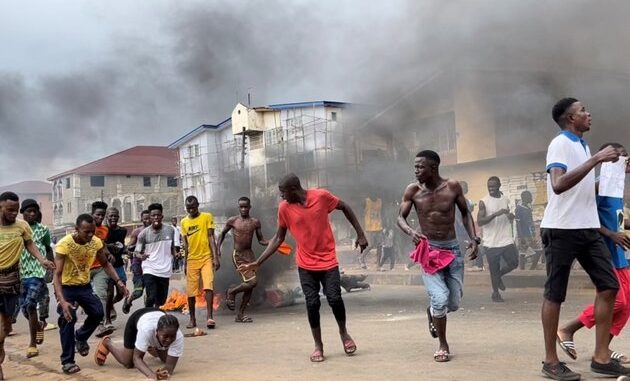

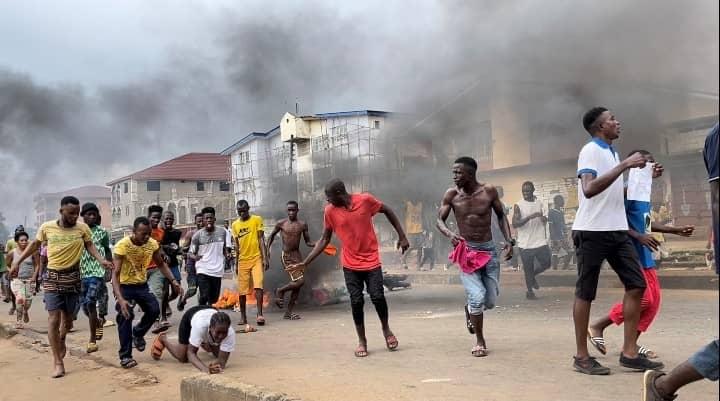

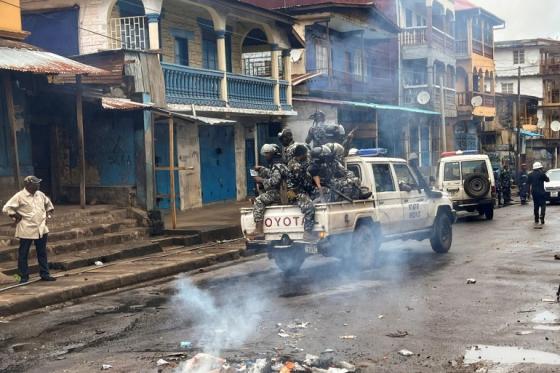 LIBERIAN DAILY OBSERVER
LIBERIAN DAILY OBSERVER